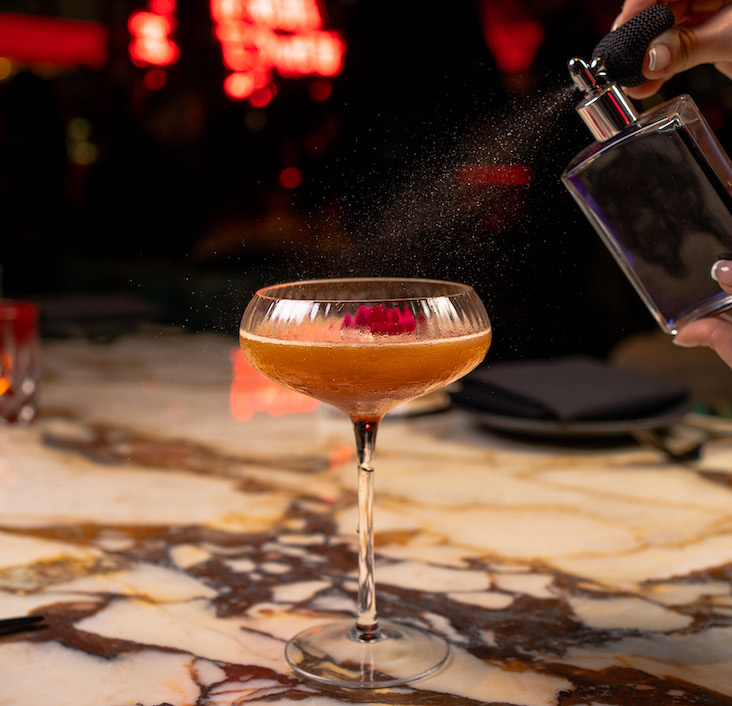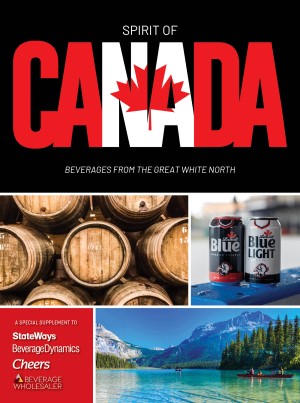Responsibility is a big issue when it comes to beverage alcohol. Every sensible person in the industry agrees that alcohol should be consumed only by adults in a responsible manner and in situations where appropriate. There’s no denying that drinking by minors and accidents caused by adults who have over-consumed are major problems.
The facts also indicate that the vast majority of adults who choose to drink do so in moderation and enjoy the positive aspects of consuming beverage alcohol. Although there has been an active movement seeking to impose restrictions on alcohol and to stigmatize any consumption, most Americans realize that our experiment with Prohibition was a failure.
The anti-alcohol movement now focuses on changes in laws, like those passed in Congress that forced the states to raise the minimum drinking age to 21 and to force states to institute a maximum acceptable blood alcohol level of .08% or give up millions in federal highway dollars.
Recent anti-alcohol proposals have included an idea floated in Los Angeles to seize and sell the cars of suspected drunk drivers before they’ve been convicted, and a bill from a New York legislator that would force all automobile owners to install a device requiring a breath alcohol test in order to start cars.
“The ultimate responsibility lies with the consumer. Awareness about alcohol and its inherent good things and dangers if abused are widely known in society,” said Guy Smith, Diageo’s executive vice president for external affairs. “We do think it’s important to remind consumers that the only way to use our products is to use them responsibly.”
“When it comes to beverage alcohol consumption there are a lot of parties that share in the responsibility,” noted Chris Swonger, senior vice president of corporate affairs, Allied-Domecq. “Suppliers have a responsibility for the messages in their advertising and marketing. Distributors and our retail partners have other responsibilities. Parents have a responsibility. There is not one entity that has sole responsibility.”
In today’s highly charged environment it’s not surprising if bar and restaurant operators feel beleaguered. Nevertheless there is much that the industry has done to address issues connected to alcohol abuse. Through different industry-funded organizations the Distilled Spirits Council of the United States (DISCUS), the Beer Institute, the Century Council and the American Beverage Institute (ABI) a great deal of positive work has been done.
DISCUS recently joined with counterparts in other nations as part of the World Spirits Alliance to mark World Health Day with a focus on road safety and a reaffirmation of the industry’s long-standing commitment to fighting drunk driving. “The U.S. spirits industry is adamantly opposed to drunk driving and has long been engaged in the fight against it. As the World Health Organization kicks-off its yearlong campaign to promote traffic safety, the nation’s distillers will continue to work aggressively to address this issue year after year,” said DISCUS president Peter Cressy. Cressy noted that the U.S. has made great progress in reducing alcohol-related fatalities over the last 20 years.
According to the National Traffic Highway Safety Administration, since 1982 the number of alcohol-related traffic fatalities declined by a third, while the number of alcohol-related fatalities involving youths under 21 fell by 55%. “While the long-term decline in drunk driving is encouraging, to make further progress we must focus our efforts on the main source of the problem the hardcore drunk driver,” said Cressy noting that 58% of alcohol-related traffic fatalities involve drivers with blood alcohol concentration of .15 or above.
WHAT OPERATORS CAN DO
Training service staff is key to responsible service. Being able to evaluate I.D.’s can help operators keep underage drinkers out of their establishments and prevent future litigation. Programs such as TIPS, the training program provided by the Health Education Foundation, help teach the basics of responsible serving and give staff on the front lines the tools to carry out responsibility policies. Diageo recently gave the foundation a major grant to develop a culturally-sensitive version of TIPS for Hispanics.
Coors helps on-premise operators with their BARS program. Establishments participating pay to have random checkers (aged 21- to 25-years-old) order drinks. If the server follows proper procedures, they receive a green card congratulating them (and if legal, a reward). If they fail to check they receive a red card, a reminder of the importance of checking all I.D.s.
Coors also produces POS material that feature the message “21 Means 21” on buttons, wristbands and other materials. They also have partnered with 1-800-TAXICAB which can give consumers an easy-to-remember, no-cost phone number to find safe alternative transportation when alcohol consumption makes driving an issue.
Coors is not alone. Miller Brewing has worked with distributors to implement designated driver and safe ride home programs during holidays and in conjunction with concerts, fairs and sporting events. Heineken has sponsored safe ride programs in a number of markets.
Miller has also made available a publication, “The Keys To Responsibility,” to help retailers, distributors, community groups and others promote transportation alternatives and responsible decision-making by legal drinking age consumers. The guide helps to develop and implement successful community-based programs to prevent drunk driving.
Operators can also make sure that the debate about alcohol is fair and balanced, and not succumb to emotion. That’s an area where the ABI has been particularly effective. “As the only organization in the nation that unites on-premise retailers with wine, beer and spirits producers and distributors, we have an important role to play in fighting adult beverage product abuse, and in protecting the rights of the tens of millions of reasonable, law-abiding Americans who drink responsibly in our restaurants,” said Stan Novack, vice president, adult beverage concepts, HMS Host, as he assumed the ABI presidency in February.
RESPONSIBLE ADVERTISING
Beverage alcohol companies have been accused of using slick ads to seduce consumers. All advertising is intended to convince someone to choose a particular brand, but it’s also true that beverage alcohol companies have spent hundreds of millions of dollars to encourage responsible consumption and are in opposition to both underage drinking and drunk driving.
When Anheuser-Busch announced its new “Responsibility Matters” campaign, the company also pointed out that from 1984 to 2004, they will have spent more than $500 million to encourage responsibility. The new initiative encourages adults to drink moderately and to designate a driver or call a cab if they’ve had too much. It also encourages parents to discuss underage drinking with their children.
“The new theme says in a few words what research, practical experience and common sense say are most important in addressing all forms of alcohol abuse–responsibility matters,” said John Kaestner, A-B’s vice president of consumer affairs.
Distilled spirits companies have long encouraged responsible consumption and the messages today are even more prevalent. A number of distilled spirits companies, including Allied-Domecq and Diageo, have announced programs that will ensure that advertising only appears in media with an audience of at least 70% adults.
“I’m very proud that Allied-Domecq is a leader in the area of social responsibility,” said Chris Swonger. “We’ve added responsibility messages to not just our top line advertising put to point of sale and other materials as well. We want to remind consumers to enjoy our products in moderation and responsibly.”
Many have developed responsibility messages for television and radio. Diageo has developed messages in keeping with each brand’s identity as a way to reach core audiences. For example, in a spot for Baileys, a man receives delivery after delivery of flowers from women who appreciated his service as designated driver the previous evening. Crown Royal trademark reminds consumers that it’s “quality, not quantity” that counts.
“One of the things that bothers us enormously is that a lot of time is spent on legislative and regulatory solutions for underage access and drunk driving and too often they make the retailer, the restaurant operator or bar owner the bad guy,” says Diageo’s Smith. “We don’t think that’s right. The first responsibility is with the consumer.”
Diageo is lobbying for legislation in various states to put more responsibility on individual offenders. A number of states automatically revoke the license of any minor caught driving under the influence, and Smith suggests that license revocation be the penalty for any incident involving a minor and alcohol, regardless of whether driving was involved. He also suggests that adults who supply alcohol to minors also face license revocation.
“We all share in this,” observed Allied-Domecq’s Chris Swonger. “Everyone in the industry is committed to responsible consumption. It requires a continuous effort and it’s something we’ll always have to address.”
ALTERNATIVES TO DWI
The American Beverage Institute uses the slogan, “Drink Responsibly. Drive Responsibly,” to get across its message that the issue in drinking in driving is one of impairment. But there are bound to be occasions when your patrons will need to consider an alternative to driving home. Here are a few:
1-800-TAXICAB–Heineken works with this taxi dispatch service to promote the Safe Call program designed to give consumers safe alternative transportation and has placed promotional materials in a number of chains including Hooters, Applebee’s and TGI Friday’s.
Last Call: Safe Ride Home– This program, endorsed by Miller and its distributors, uses a subsidized voucher system to provide free, re-imbursed or reduced-fare cab rides home for those who need them.
Miller Free Rides Progam–This community service program provides free public transportation on popular holidays such as New Year’s Eve and St. Patrick’s Day to promote responsible celebrations. Miller teams up with public transit companies, law enforcement and public safety agencies and its distributors to encourage individuals to plan ahead and take advantage of this free transportation alternative.
JUST THE FACTS
According to the National Traffic Highway Safety Administration, since 1982 the total number of alcohol-related traffic fatalities has declined 33%, and the number of under 21 alcohol-related traffic fatalities fell 55%.
In a recent survey commissioned by The Century Council, 65% of the teens responding said they got the alcohol they drink from family and friends.
Recent research commissioned by The Century Council reveals that 65% of underage youth who drink obtain alcohol from family and friends. Equally important, only 7% of youth report that they obtained alcohol from retailers who failed to check for identification.
According to the Harvard School of Public Health, designated driver programs have helped save an estimated 50,000 lives between 1988 and 1998.
Drivers with blood alcohol concentrations (BAC) of .15 or above are responsible for 58% of alcohol-related traffic fatalities.




